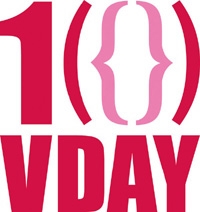 Many people have asked me why I have not addressed the Megan Meier story that broke over the last month. I admit that I’ve been extremely bothered by the stories and the implications of an adult bullying a child through mediating technology. That said, I suspected that the press wasn’t telling the full story. Like all coverage of horrible events, the press focused on what made the story juicy rather than trying to paint a complicated picture of what led to the event. I grew up in a town where a teen murder captured everyone’s attention (and turned into a made-for-TV movie). It took years and uncountable appeals before we had a decent picture of what actually happened and, during that time, the stories on the street were far different from what the press was covering. Thus, I wanted to wait until I knew more.
Many people have asked me why I have not addressed the Megan Meier story that broke over the last month. I admit that I’ve been extremely bothered by the stories and the implications of an adult bullying a child through mediating technology. That said, I suspected that the press wasn’t telling the full story. Like all coverage of horrible events, the press focused on what made the story juicy rather than trying to paint a complicated picture of what led to the event. I grew up in a town where a teen murder captured everyone’s attention (and turned into a made-for-TV movie). It took years and uncountable appeals before we had a decent picture of what actually happened and, during that time, the stories on the street were far different from what the press was covering. Thus, I wanted to wait until I knew more.
For those who are not familiar with the Megan Meier story, let me create a brief overview of what has been commonly covered in the press. Megan (13, St. Louis) had a MySpace profile when a cute boy “Josh” (16) begins courting her. All is well until Josh breaks up with her online by sending cruel messages about how she hurts her friends, is fat and a slut, and “the world would be a better place without you.” Shortly after reading this, Megan commits suicide. Josh turns out to be a fake profile created by Lori Drew, the mother of one of Megan’s former friends. Police investigate, no charges are filed.
Because the story taps into every parent’s worst fear and the paranoia over the internet, the press have been saying all sorts of things. Yet, never was there a response from the woman who admitted to creating Josh, most likely because she was forbidden from speaking out as police work out whether charges are to be filed. Then, this morning, I learned that someone who identifies as Lori Drew posted an explanation on a blog called “megan had it coming”. Given the title of the blog, I had serious doubts that this was legitimate but upon reading the post, I think it actually might be.
(Update: Lori Drew’s lawyers have said that Drew is not the writer of the blog. Thus, what follows is an interpretation of what an unknown person purporting to be Lori Drew said and should be taken with a grain of salt. The broader discussion of parenting today is still relevant.)
What we learn is that Lori viewed her acts as protective of her child who she believed was the victim of Megan’s dark side. She thought she was teaching Megan a lesson and never imagined the consequences of her efforts to give Megan a taste of her own medicine. Because of earlier incidents involving her daughter, she had no love for Megan and no respect for Megan’s parents who she felt were unable to see the dark side of their daughter. Step into this mother’s shoes and it’s easy to understand her logic and why, from her POV, she took the steps that she did. At the same time, her perspective signals some absolute failures in American society, our ability to rationally communicate, and Lori’s inability to imagine potential costs of her decisions.
Much to my dismay, parenting today seems to require absolute belief that you’re child is the best child ever. Many parents think that their child can do no wrong and, thus, are unable to hear critiques of their own children. In some ways, it’s not surprising… people have fewer kids (who are mostly wanted thanks to birth control), inhabit single family homes, and live in a nurture-centric world where their children reflect on them at every level. Doubting one’s child means doubting oneself.
The result of our child obsession is that parents are overprotective. They want to cushion their children from every scratch and get involved in every incident that makes their children feel emotional or physical pain. This is precisely what causes parents to call schools when their child gets a B or ring up other parents when something mean is said on the schoolyard or other symptoms of “helicopter parenting.” Children are not encouraged to struggle through the feelings of pain and hurt and find a solution; instead, parents are expected to get involved and fix it and most enter the ring voluntarily. In these environments, there’s no social solidarity amongst parents and parents are unable to hear criticism about their child. Instead, such critiques are viewed as attacks and are used as weapons when parents want others to control their children their way.
Reading between the lines, I get the sense that Megan was emotionally all over the place (for whatever reasons – an actual issue or just plain puberty). She was struggling to negotiate friendships and she had a mean streak when she was depressed. She wasn’t the cool kid and she was struggling to fit in and made poor judgments about how to handle friendships. She wanted someone to love her and make her feel cool and important. Frankly, it seems like pretty normal middle school tumultuousness, but we live in a culture that can’t accept rough edges. Maybe meds would’ve stabilized her, maybe her self esteem would’ve improved without the braces, or maybe and most importantly, it was just a matter of time. But as anyone who was not that cool in school can tell you, middle school sucked. It’s ground zero for learning how to negotiate social interactions and many mistakes are made. This is when bullying and boy/girl-dynamics and other dramas really come to the forefront. It’s awful, it’s hell. Yet, the responsibility of a parent of a tween is not to try to fix all painful situations, but to teach their child how to negotiate them responsibly. This is much harder than fixing things and it’s challenging for Type A parents who desperately want their kids to turn out OK. But no good comes of kids not learning coping mechanisms and relying on parents to fix every social issue.
While I understand Lori’s desire to protect her child and her feeling of helplessness for not being able to do anything, it’s not clear to me from her story that she focused on giving her daughter much agency. Instead, she felt as though she was responsible for fixing it. Here is where I think she made a mistake.
Deceiving children is problematic to begin with, but doing so by tapping into their emotional weaknesses is outright deadly. At a gut level, Lori knew that she could capture Megan’s attention by creating a male character that showed interest. In other words, Lori knew how to manipulate Megan’s attention and emotions. She capitalized on that knowledge, self-justifying it as responsible parenting. She knew how to have the “perfect” relationship with Megan, to gain her trust. This is knowledge that adults have because we’ve had our mistakes and learned how to negotiate social interactions. The reason that Megan’s relationships were so fraught was probably not because she was evil but because she and her peers were struggling with how to appropriately interact with one another. It’s clear from Megan’s reaction to Josh that she was fully capable of positive interactions in a social context not strife with miscommunication and the confusion of school status. If she were truly as messed up as Lori assumed her to be, she would not be capable of this.
In my opinion, by choosing to “teach her a lesson,” Lori acted in a manner that was both ethically and morally inappropriate. Revenge is foolish in every context, but adults should never take revenge on children, regardless of how much those children upset them. This is an abuse of power. Furthermore, it signals to Lori’s daughter that revenge is an OK response to being hurt. Whatever happened to “turn the other cheek”? For a Christian society, we don’t do a good job of upholding basic Christian values.
While Lori believes that her act of verbal maliciousness is equivalent to Megan’s meanness to other kids, she’s wrong. Kids can definitely be cruel and it definitely hurts, but it’s embedded in a larger context about the struggles for status and popularity, the social context of the broader peer group, and, generally, reciprocal bad treatment. As much as parents want to believe that other kids are mean to their child but their child is innocent, this is rarely the case. There is usually build up and a lot of back and forth before an incident that we’d call “bullying” takes place. Bullying rarely happens out of the blue – it’s situated in a larger context of social drama and hurt. By pretending to be a love interest when sexuality is burgeoning and having a significant other is a valued status marker, Lori was not simply operating as another peer. Furthermore, by building her trust, Lori consciously made Megan vulnerable. Even if she did not realize it, the trust built in such a context far exceeds the trust between most peers at that stage, and thus made Megan more vulnerable to Josh than Lori’s daughter was to Megan. Capitalizing on that trust and swiftly and cruelly rupturing that bond was a truly horrible act of abuse.
I’m glad that Lori is sharing her perspective and I hope that parents read it because I imagine that many can see themselves in her shoes. Yet, I hope that parents can also see why Lori’s decisions are flawed and dangerous. The critical lesson here is not about the internet, it’s about parents responsibilities in raising their children. As tempting as it is to get involved and as easily as it is to do so online through deception, parents usually need to stay out of such situations. They need to advise their children, teach them how to cope, and support them through the tumultuous times. Of course, there are examples when things go too far over the line and parents need to get involved, but it seems as though that line has been erased. Helicopter parenting is dangerous and, frankly, I don’t think that we’re going to see the full damage of it for another 10 years as this cohort enters the workforce (although Twenge argues that the narcissism part is already affecting the workplace). The biggest problem is that this needs to be done en masse. It doesn’t help to have some parents disengage while the majority of a peer group’s parents are calling the school and demanding fairness and getting involved in every childhood squabble. Parenting is hard, seeing your child hurting is hard, thinking you can fix it and choosing not to is hard, wanting your child to get every opportunity possible and yet choosing not to manipulate the system is hard. I totally understand why parents want to get involved and fix it, but such engagement can be harmful to children long-term and result in a more problematic culture more broadly.





